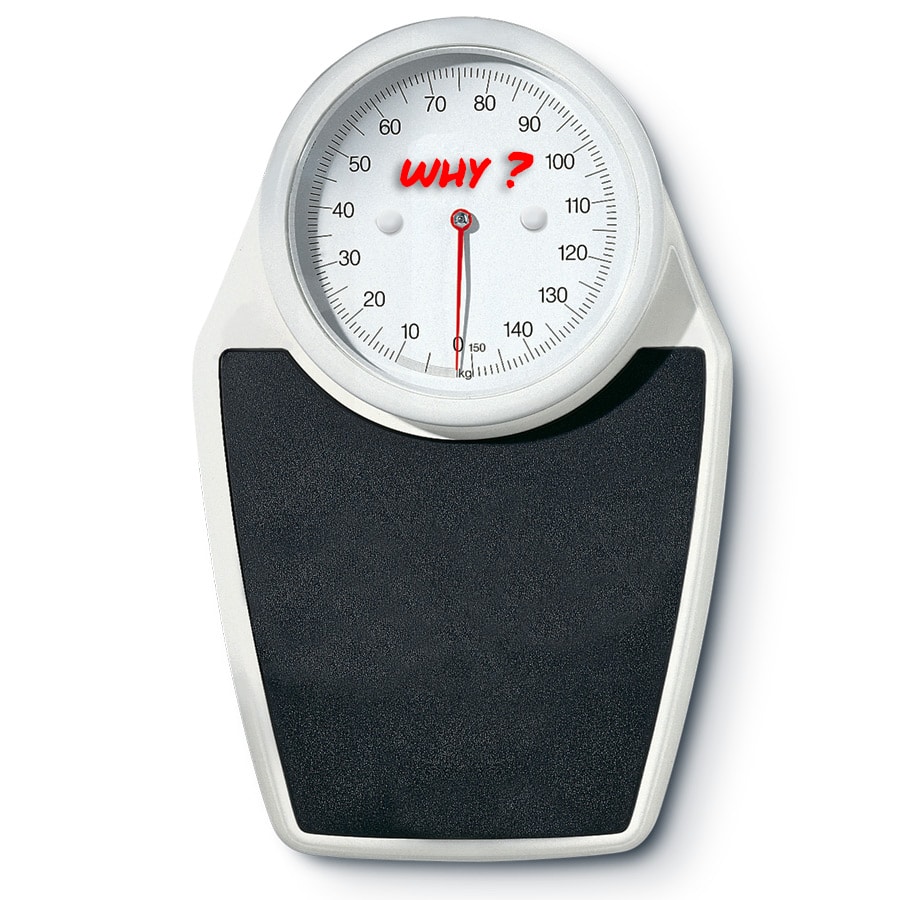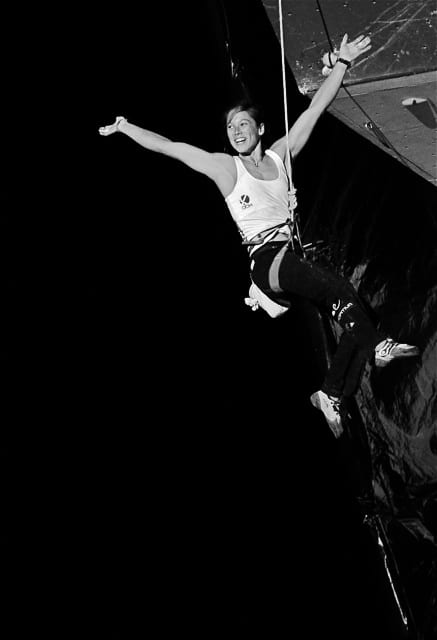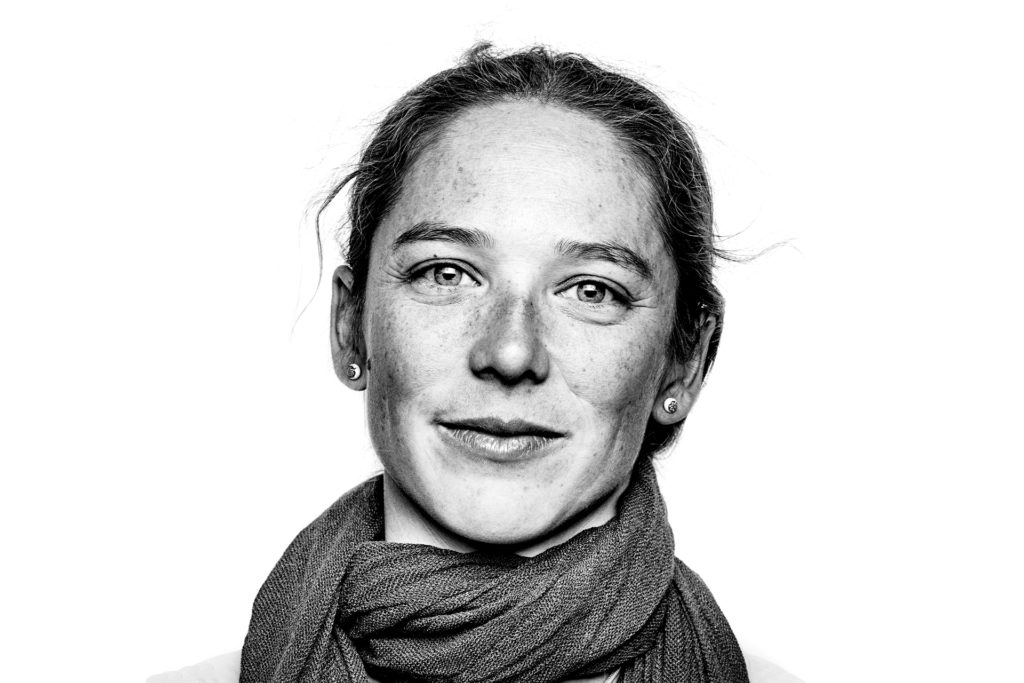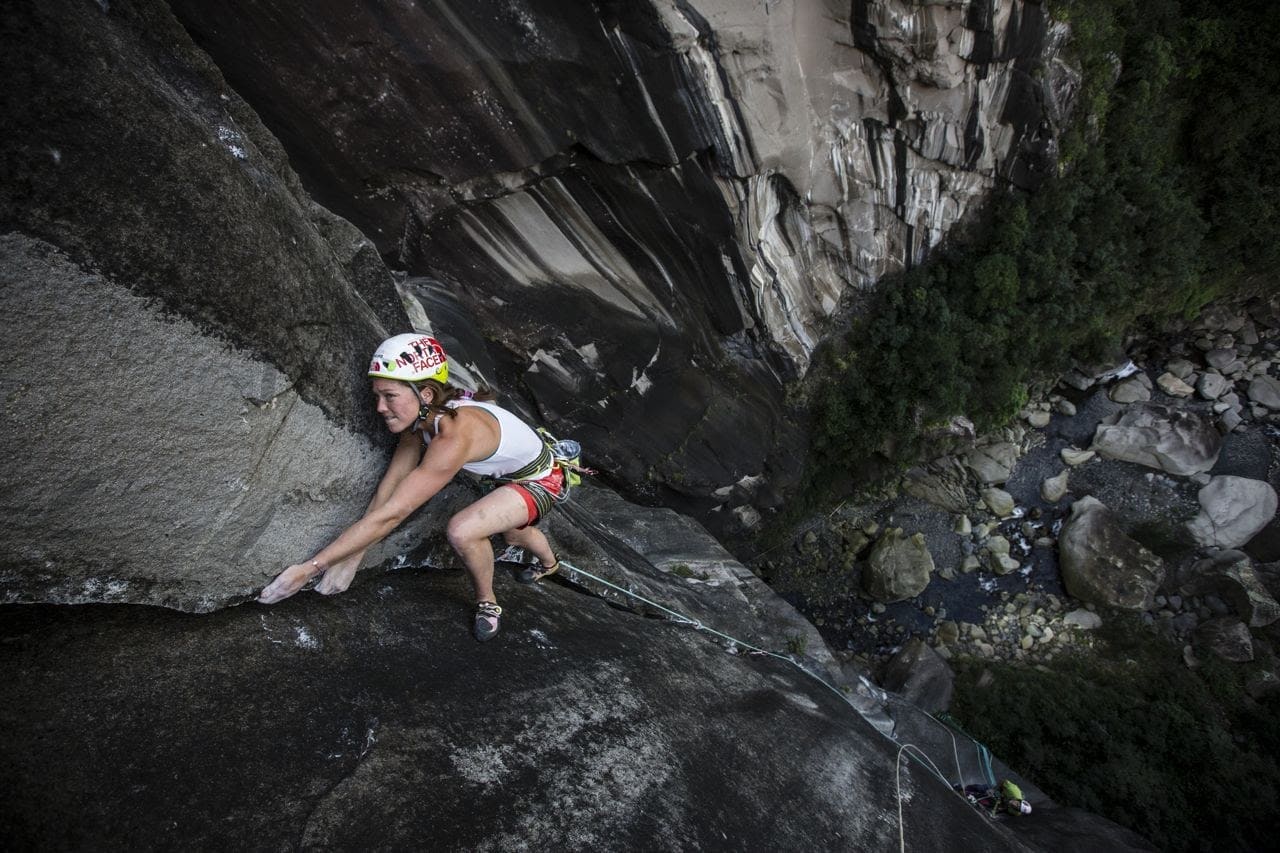High level climbing is very demanding. So much so that some athletes themselves, poorly advised or with little support, cultivate weight loss, with dangerous consequences. Ex-competitor Caroline Ciavaldini decided to speak out and say that she herself knew that her own eating disorders were the result of her quest for success, and caused her repeated injuries. By questioning other climbers, Caroline Ciavaldini and Coralie Havas realised that this biased relationship with food, which can result in anorexia and episodes of bulimia, is unfortunately widespread. It is time for the word to get out about certain (bad) habits.
I am 36, I have hundreds of km of climbing under my hands, a lot of experience in competitions at the highest level, and also in trad, adventure climbing, and all sorts of bizarre vertical adventures that the climbing world can offer. And a little secret, forgotten with the years and the stories that came after.
I didn’t really think that I would ever need , or that I would ever be able to share this part of my story.
But 2 months ago, young Coralie, a 22 year old climber came to tell me something that was on her heart. I have seen her grow as she came every week to climb on my home climbing board since she was 15.
Coralie had seen the movie Light, and it gave her the courage to come tell me about her eating disorders : « My eating disorder began after a nasty comment on my appearance. Il opened the door to obsessions, to counting calories, weighing myself everyday, always with fear. For a long time, I thought that it was just me who had a problem. I was ashamed, I didn’t talk about it for years. »
Coralie was ready to be open about it, as it was a great way to climb the ladder to full recovery.
I do remember that the very first time that I began giving her training advice, back when she was 16, I told her never to diet for climbing. I had thought, on the moment, that she would remember, except while for me this words meant a lot, they didn’t have the same importance at the time for her. 16 year old Coralie didn’t see the dangers in dieting. I should have said much more…
Later when she began dieting to get better at climbing, at first it worked pretty well: she was thinner, and of course stronger… But she soon fell into the infernal cycle of more dieting, more thinking about food, and despite her climbing level rising slightly, it simply wasn’t worth it.
I then realised that I could have stopped that. I didn’t see what was under my nose, because like a lot of other young climbers, she was good at pretending… just as I had been.
There is no other way than to become more open about the subject. If I want to help the newer generation, I will have to tell my story, with the dark side.
I didn’t see what was under my nose, because like a lot of other young climbers, she was good at pretending… just as I had been
An abnormal relationship with food
Straight away, I want it to be very clear to the youngsters, this has happened to A LOT of climbers. Top level climbers, and also climbers who wanted to get better and had been told to follow this direction. Coralie and I started a study, with questions to top climbers and « normal » climbers, and it is obvious that most high level Athletes recognise having an abnormal relation with food. Whether it is anorexia, bulimia, excessive control, calorie counting …., it always does something bad to you. In the worst case it will drive you all the way to death, it could make you sterile, or it could simply de-socialise you, obsess you to the point of making you wake up every morning thinking about breakfast, and going to sleep waiting for that breakfast. You will lose the sensation of satiety. Food will become everything that you care for, and hate at the same time.
Climbing, or more precisely the training advices that we hear without enough information, can lead to health issues. I was there. Right there.
it was very obvious that we had to pay attention to our weights. Our trainer at the time didn’t say much about it, but he bought us a scale.
I started climbing on Reunion Island when I was 12. I had a very dynamic club who trained its youngsters very well. Soon, I joined the Reunion team, then the youth French team, and moved to France at 16 to enter a « Pôle espoir ». We had physios, dieticians, mental trainers… But also, we had the exemples of older athletes, and it was very obvious that we had to pay attention to our weights. Our trainer at the time didn’t say much about it, but he bought us a scale. With insight, I am very aware that despite being extremely competent in training, he was’t very aware of the ways to prevent eating disorders. He had the same beliefs than everyone in the climbing world: you have to be thin to win.
So just like the other athletes, I began paying more attention to what I was eating. The dietician didn’t really help, as she was only telling me to eat more. The simplest way was to count calories. I would spend hours at the supermarket counting the calories of different boxes.

Bulimic episodes
I had a few episodes of bulimia. It had began quite naturally, as I had seen my mum go to the toilets after eating a full tablet of chocolate. With hindsight, I think she too had a strange relation with food, but was handling it more or less… All of the years where I was competing, so from 16 to 25, I was constantly on diet from January to November, counting calories, eating only soup in the evening, and having episodes of bulimia when I really couldn’t stop myself from eating chocolate, or cereals, or biscuits, or crips…
All my friends around me knew that I was on diet, as I would often cook for them and eat a soup for myself. But in all this years, I never told anyone about my issue. Even my boyfriend, who was living with me, didn’t notice the bulimia. I was an expert at hiding.
I had a very unbalance diet, and with years of experience, I think this is just the reason why I was getting injured nearly every year
Somehow it was under control. Or I like to tell myself. I had made a lot of research about all the disease that bulimia creates, and I knew that I had to keep my episodes rare if I wanted to avoid throat cancer or other horrors. I wasn’t thin to the point of danger, as with 1m68, my « best shape » weight was 52 kg. But to achieve that, I had a very unbalance diet, and with years of experience, I think this is just the reason why I was getting injured nearly every year: I had a weakness with finger tendons and every year a tendonitis, or even a poulie would stop me from training for 1 or two months. I did achieve what I was dreaming of: I was one of the « stars ». I made 12 world cup podiums, I won 1 world cup in Chamonix. I finished twice 3rd of the overall world cup ranking.

Caroline victorious in Chamonix, 2011.
The price to pay
And I knew eating disorders was the price to pay. The other girls, and also the other boys around me were at least as thin as me, or even much thinner. I could see how they behaved weirdly with food too. Pretty much every one amongst the very best had an abnormal relation with food.
Emily Harrington is one of the rare athletes to have come forward with her story, and I do precisely remember coming second when she won at the International event of Serre Chevalier, in France, and thinking to myself that she was only ahead of me because she was thinner, and most likely sicker. I didn’t’ have the luxury to be sorry for her, or I would have had to be sorry for myself.
I knew that my eating disorder was a « simple » consequence of my quest to be better at climbing, and I was very careful when I began associating bulimia with sadness. I had to make sure to dissociate my emotions from my behaviours, of it would become a part of me that I would never be able to get rid of.
I knew that my eating disorder was a « simple » consequence of my quest to be better at climbing
I stopped competitions when I was 25, as I had already been competing for 9 full years, and I looked at myself as an old athlete. I had always known I wouldn’t compete until 35, because I wanted to get rid of my eating disorder, and to discover an other life that comp forbid. As soon as I quit competitions, I began a transition to be a professional outdoor climber.
I was lucky, I met the right persons (James of course), the right sponsors (The North Face), and with them, I grew as an athlete to discover a totally different aspect of climbing: adventure. At the same time, I threw away my scale, and swore to never own one again. I began eating normally again. I was moving more, with long approaches to the crags, long days in multi pitches, and even if I did gain weight, I slowly found the sensation of satiety again, and found my natural balance weight. I could still climb 8c, I could still onsight 8b, but of course I didn’t have the same pure power endurance. I wasn’t as good for the very specific effort of comps, but I could be just as good a climber. And so much happier.
at the time, I couldn’t see the link between my injuries and my eating habits
I don’t know if I could have climbed on podiums without this extreme and unhealthy solutions. Maybe I could have been slightly heavier, but train better and avoid injuries, and that would have worked. But at the time, I couldn’t see the link between my injuries and my eating habits. I am not telling you that I regret competing. It was extremely hard, but I also learned to be the very best I could be, to get up after a failure. I just wish I could have found a way to compete without having to resort to this.
I am simply hoping that my story could help ant youngster realise that they are not alone in their hole, that it is climbing that does this to people. Talking about your problem is the most courageous solution, and maybe someone will help you see the bigger picture, as after all, the most important is to be happy.
Climbing can also, and should be, the way to happiness, just chose the path that works for you !
If you wish to testify, or if you are looking for information on this subject, you can write to [email protected]



